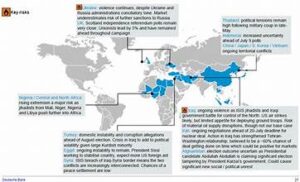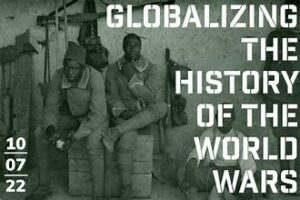
The World Wars of the 20th century were monumental events that reshaped global geopolitics in profound ways. Understanding their impact on modern geopolitics provides insights into current international relations and geopolitical strategies. This article delves into how World War I and World War II have influenced contemporary global dynamics, offering a historical perspective that highlights their enduring legacies.
World War I: The Dawn of a New Geopolitical Era
World War I, which lasted from 1914 to 1918, was a pivotal moment in world history. It marked the end of empires and the redrawing of national borders, setting the stage for future conflicts and geopolitical shifts.
- Collapse of Empires: The war led to the dismantling of several empires, including the Austro-Hungarian, Ottoman, Russian, and German Empires. The Treaty of Versailles (1919) and subsequent treaties redrew the map of Europe and the Middle East, creating new nation-states and sowing the seeds of future conflicts. The fragmentation of these empires created power vacuums and territorial disputes that continue to influence geopolitical relations today.
- Rise of Nationalism: The aftermath of World War I saw a rise in nationalist movements. Many new countries emerged with strong national identities, often leading to internal and external tensions. For example, the creation of Yugoslavia and Czechoslovakia introduced new ethnic and national challenges that would later contribute to regional conflicts.
- Formation of International Organizations: The League of Nations was established to promote peace and prevent future conflicts. Although it ultimately failed to prevent World War II, it laid the groundwork for the United Nations and other international organizations designed to foster global cooperation and manage international disputes.
World War II: Shaping the Post-War World Order
World War II, which occurred from 1939 to 1945, was even more transformative in its impact on global geopolitics. The war not only redefined national boundaries but also led to significant changes in international power structures and economic systems.
- Emergence of Superpowers: The end of World War II saw the emergence of the United States and the Soviet Union as the world’s two superpowers. Their rivalry, known as the Cold War, shaped international relations for much of the latter half of the 20th century. This bipolar world order influenced global politics, with numerous proxy wars and geopolitical maneuvers centered around the competition between these two powers.
- Decolonization: The war accelerated the process of decolonization. Many European powers weakened by the conflict struggled to maintain their colonial empires, leading to independence movements in Asia, Africa, and the Middle East. The end of colonialism drastically altered global geopolitics by creating new nations and shifting the balance of power.
- Creation of the United Nations: In response to the failures of the League of Nations, the United Nations was founded in 1945 to promote peace and security. The UN’s role in mediating conflicts, providing humanitarian aid, and upholding international law continues to be a cornerstone of modern geopolitics.
- Cold War and Its Legacy: The Cold War’s impact on modern geopolitics is significant. The ideological battle between capitalism and communism influenced global alliances, military strategies, and economic policies. The end of the Cold War in 1991 led to the unipolar dominance of the United States and a shift toward globalization, but also introduced new challenges such as regional conflicts and the rise of non-state actors.
The Continuing Influence of the World Wars
The legacies of the World Wars are still evident in contemporary geopolitical landscapes:
- National Borders and Conflicts: The borders established after World War I and World War II continue to influence regional conflicts and national identities. Territorial disputes and ethnic tensions in various parts of the world can often be traced back to the outcomes of these wars.
- International Institutions and Treaties: Many international institutions and treaties established in the aftermath of the World Wars, such as the United Nations, NATO, and the International Monetary Fund, play crucial roles in maintaining global stability and addressing contemporary issues.
- Geopolitical Strategies: The strategic interests and alliances formed during and after the World Wars still impact global geopolitics. The focus on power balance, military alliances, and economic interests reflects the enduring influence of these historical conflicts.
- Economic and Political Systems: The economic and political systems that emerged from the World Wars, including the rise of the global economy and democratic institutions, continue to shape international relations and policy-making.
Conclusion
The World Wars were transformative events that reshaped the global landscape and laid the foundations for the modern geopolitical order. By understanding their impact, we gain insights into current international dynamics and the ongoing challenges faced by nations today. The historical perspective provided by these conflicts underscores the importance of addressing the enduring legacies of the past to navigate the complexities of the present and future geopolitics.



